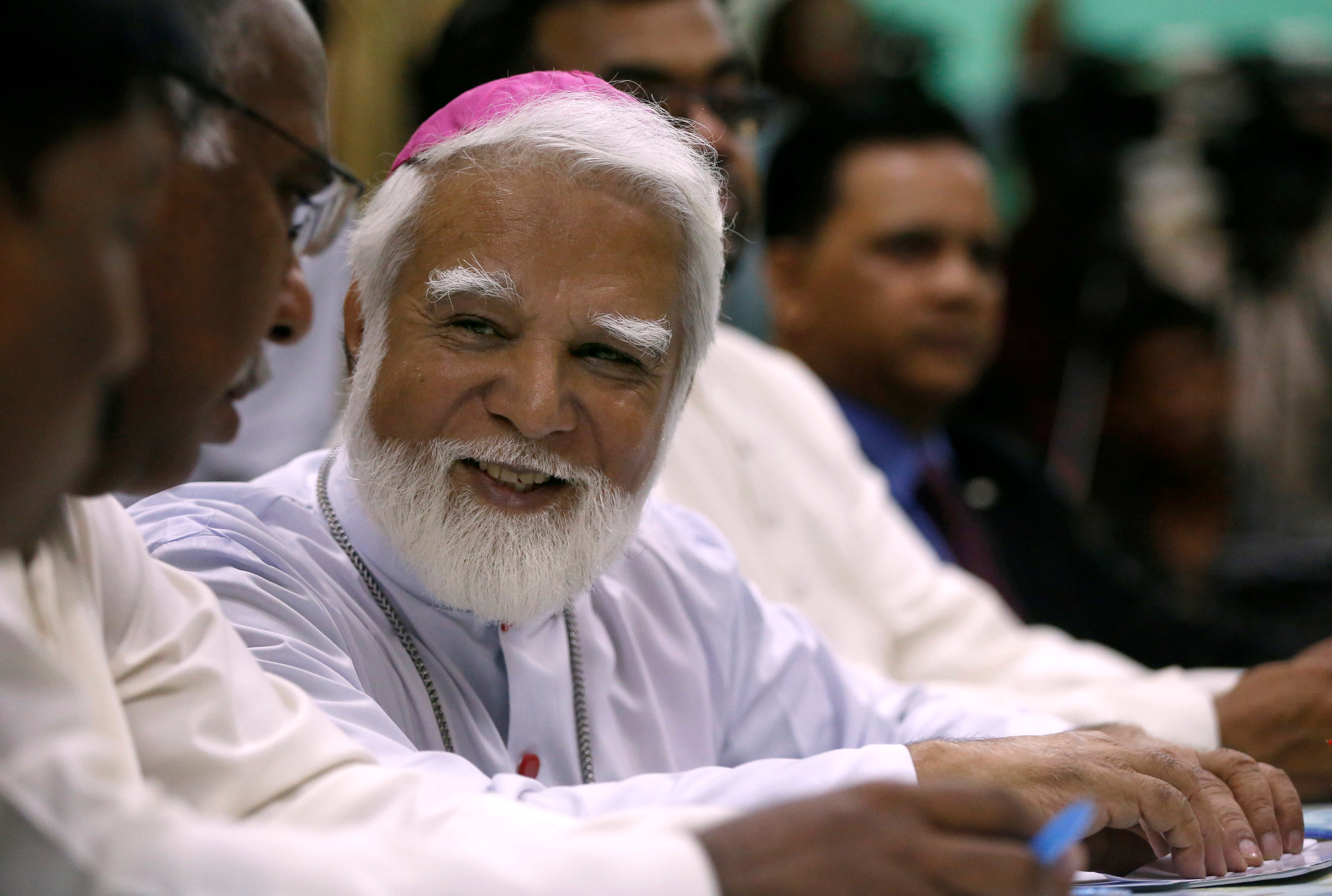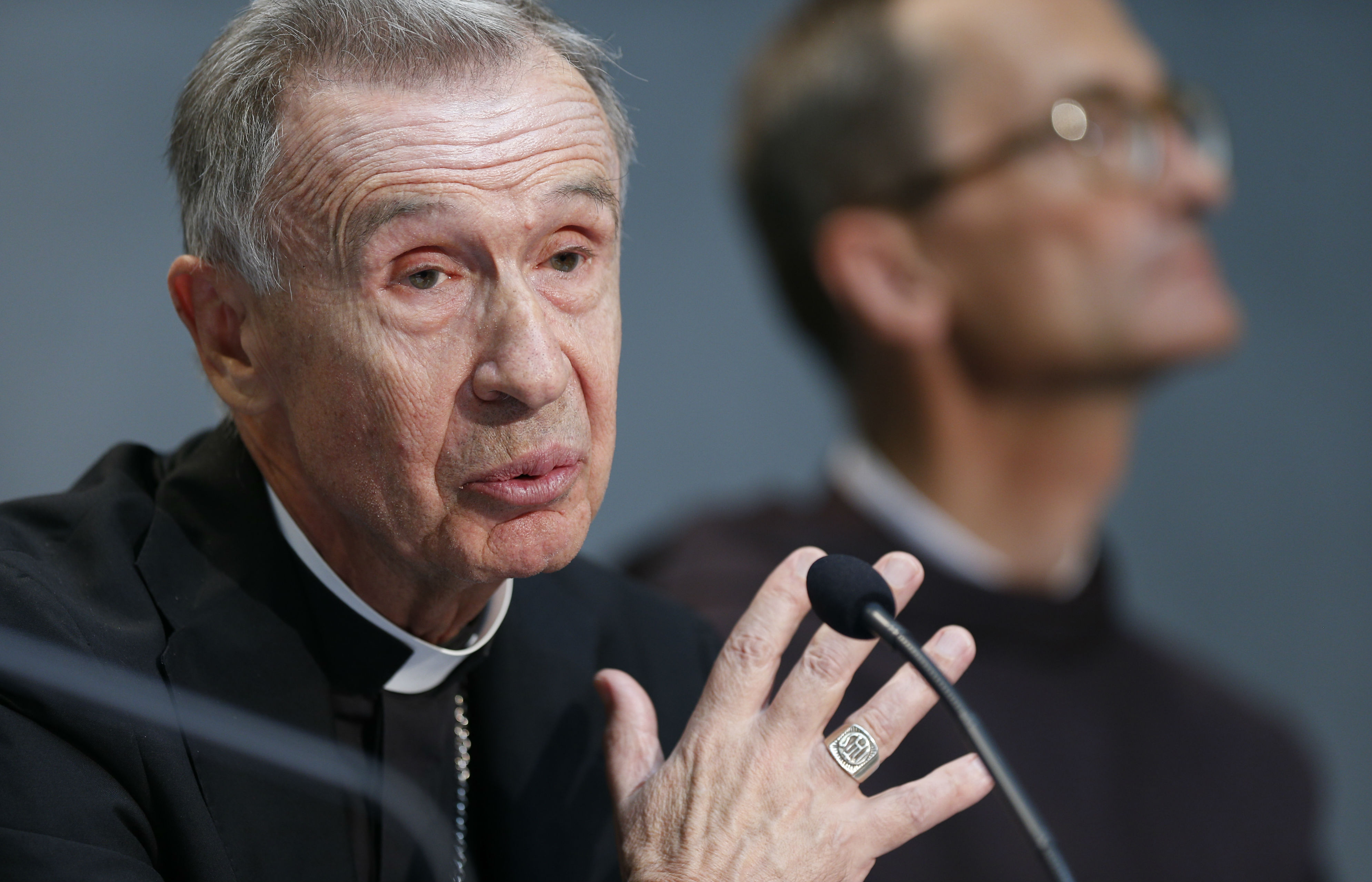The leader of the Vatican's doctrine department says the Church’s belief in a male-only priesthood is infallible teaching which should be held as an unchanging and “definitive” part of the Catholic faith.
Delivering the most forthright doctrinal statement so far against the ordination of women under Francis’ papacy, Cardinal-designate Luis Ladaria SJ says that maleness is “an indispensable element” of the priesthood and that the Church is “bound” by Christ’s decision to only choose male apostles.
The Prefect of the Congregation for the Doctrine of the Faith, who will be made a cardinal by Pope Francis on 28 June and who, like the Pope, is a Jesuit, issued his intervention in an article for the Vatican’s semi-official newspaper, “L’Osservatore Romano”.
In 1994, Pope St John Paul II ruled that "the church has no authority whatsoever to confer priestly ordination on women” while adding that this is a teaching that should be “definitively held” by all Catholics.
Some, however, questioned whether this teaching might be overturned at a later time by a Church council or a future Pope given it had not been formally proclaimed as infallible by John Paul II. He did not, theologians argue, proclaim the teaching “ex cathedra” (from the Chair of St Peter), as is required for popes when they make infallible pronouncements.
Cardinal Christoph Schönborn, a world-renowned theologian who edited the Church’s catechism, said in a recent interview that the question of female ordination need to be settled by a church council and not from the “desk of a Pope”.
But the Spanish doctrinal prefect disagrees and argues ordinary believers are becoming disorientated by the undermining of John Paul’s ruling.
“Sowing these doubts creates serious confusion among the faithful not only about the sacrament of orders as part of the divine constitution of the church, but also about how the ordinary magisterium can teach Catholic doctrine in an infallible way,” Ladaria says.
He points out that infallible teaching is not simply proclaimed by a council or a Pope speaking “ex cathedra,” but is also proclaimed by bishops across the world who, in communion with the Pope, propose doctrine that should be “held definitively”.
Archbishop Ladaria reveals that John Paul II had consulted with leaders of episcopal conferences before issuing his 1994 document, “Ordinatio Sacerdotalis”, and that they all declared support and obedience to the teaching.
The Polish Pope, Ladaria explains, did not wish to “work alone” but sought to ensure he was listening to an “uninterrupted and lived tradition”. In 2015, Francis said it was after “long, long intense discussions”, John Paul II had issued his ruling on women’s ordination.
“He did not declare new dogma, but with the authority conferred on him as successor of Peter, he formally confirmed and made explicit - to remove any doubt - that which the ordinary and universal magisterium had considered as belonging to the deposit of faith throughout the history of the church,” the doctrine prefect writes.
The 74-year-old cardinal-designate stresses that the refusal to ordain women does not mean a “subordination, but a mutual enrichment” of men and women while the exalted role of Mary shows the importance of both the feminine and masculine aspects of the Church.
This is all the more important in a contemporary culture which Archbishop Ladaria says “struggles to understand the meaning and the goodness of the difference between man and woman”, and what should be complementary, although distinct, roles.
For his part, Pope Francis has repeatedly supported the bar on women’s ordination including the argument that it should be held as unchanging teaching.
He has, however, made attempts to give women greater roles inside the Church and in August 2016 established a commission examining female deacons.
That body is led by cardinal-designate Ladaria and there is speculation in Rome that his intervention could be a shoring up of teaching on the priesthood ahead of a move on allowing women into the diaconate.
In 2009, Benedict XVI issued a legal ruling clearly delineating the role of deacons - technically members of the clergy - from the ordained priesthood. While deacons serve the Church, Benedict ruled, it is priests and bishops who participate in the “headship of Christ”, following the Catholic teaching that the priest acts in the “person of Christ”.
That distinction between the diaconate and priesthood might free up the possibility of allowing a diaconate which includes women, but definitely rules out priesthood.
“The priest acts in the person of Christ, spouse of the Church,” Ladaria writes in his article. “His being a man is an indispensable element of this representation of the sacrament.”
He adds: ”Christ willed to confer this sacrament on the 12 apostles - all men - who, in turn, communicated it to other men. The church always has seen itself as bound to this decision of the Lord, which excludes that the ministerial priesthood can be conferred validly on women."
It was Paul VI, in a 1975 letter to then Archbishop of Canterbury Donald Coggan, who issued the first modern day papal ruling against ordination of women saying it was “not admissible to ordain women to the priesthood, for very fundamental reasons.” Archbishop Coggan had written to Paul VI to explain a growing consensus in the Anglican Communion in favour of ordaining women.
While the Catholic Church continues to oppose female priests, the Anglican Communion now has women serving at the highest levels of ecclesiastical leadership.



 Loading ...
Loading ...